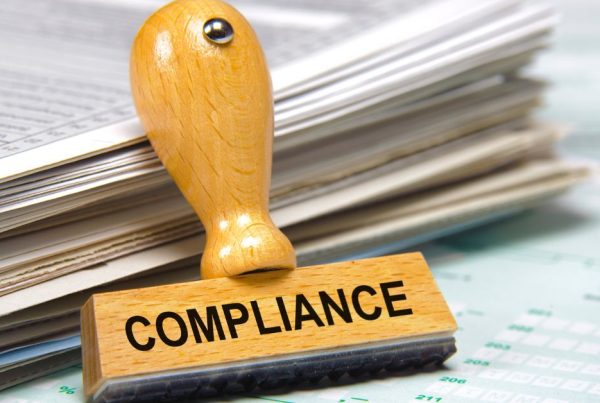
Accurate financial reporting is the cornerstone of sound business decisions and compliance for Certified Public Accountants (CPAs). However, manual data manipulation and miscommunication between departments often lead to errors, jeopardizing the integrity of financial statements. Leveraging advanced tools and strategies, such as automated data entry and integrated platforms like Minute7, can significantly enhance data accuracy, ensuring precise financial reporting and minimizing the risk of costly mistakes.
The Importance of Accurate Financial Reporting for CPAs
Accurate financial reporting is crucial for Certified Public Accountants (CPAs) as it forms the basis for informed decision-making and strategic planning, both for the businesses they serve and their own practices. Accurate financial statements and reports allow businesses to track performance, providing visibility into critical factors like profit margins, cash flow, debts, operational costs, and more. With these insights, businesses can set data-driven strategic goals, allocate resources effectively, and steer the company toward sustainable growth (source).
Accurate financials are also essential for securing funding from investors and lenders, who require reliable financial reports to evaluate the health and viability of a company. Furthermore, a history of accurate accounts can give business leaders the data to spot trends and problems before they threaten a business’s survival (source).
Despite the importance of accurate financial reporting, CPAs often face challenges in achieving this accuracy. These challenges can range from managing changes in cash flow and adapting to new tax and regulatory changes, to adjusting to remote work, ensuring steady cash flow, and dealing with fluctuating revenue trends (source). Another significant challenge is the issue of data cleaning. Most companies and governments still spend 80% of their time on data cleansing, a task that machine learning algorithms can perform in minutes. This illustrates the need for accountants with technical expertise who can design algorithms capable of reducing the human workload and improving data accuracy (source).
Inaccurate financial reporting can have severe consequences for businesses. With flawed financials, leadership lacks visibility into what’s truly working or failing in the company, leading to poor budgeting, operational losses, inappropriate growth strategies, and missed tax obligations (source). Inaccurate financial reporting can also lead to poor operational decisions, reputational damage, economic loss, penalties, fines, legal action, and even bankruptcy (source). For instance, incorrect financial data can result in serious issues like penalties and audits from regulatory bodies such as the IRS (source). This underscores the importance of accurate financial reporting and the need for solutions like Minute7.
Common Sources of Errors in Financial Reporting
Errors in financial reporting can stem from several sources, undermining the accuracy and reliability of the data. Understanding these sources is crucial for Certified Public Accountants (CPAs) to implement effective strategies for mitigating errors.
Manual Data Entry and Its Pitfalls
Manual data entry remains a common practice in many organizations. Employees input data into spreadsheets, tables, or documents, which are then stored on various platforms. This traditional method, however, is fraught with risks. Studies show that a significant percentage of workers spend considerable time on manual data entry (source). The primary issue with this approach is the high risk of user error, including typos, miscalculations, and improper document saving. Additionally, manual data entry is time-consuming and can become costly in the long run due to inefficiencies and the need for corrections (source).
Miscommunication Between Departments
Communication breakdowns within an organization can lead to substantial financial inaccuracies. According to a report, poor communication costs businesses approximately 7.47 hours per employee per week, translating to about 18% of total salaries paid (source). Miscommunication can arise from domineering personalities, cyclical conflicts, and dysfunctional connections within the organization. These issues lead to errors in data transfer and reporting, ultimately affecting the financial health of the company (source).
Inadequate Tracking of Expenses and Time
Accurate tracking of expenses and time is vital for reliable financial reporting. Financial tracking involves the ongoing monitoring of an organization’s income, expenses, and cash flow. It is essential for informed decision-making and ensuring long-term sustainability (source). However, small business owners often neglect this task due to time constraints, leading to inaccurate financial records. Proper financial tracking reduces the time required for tax preparation, identifies potential issues early, and ensures employee honesty. It is also essential for spotting profitable growth opportunities and managing expenses effectively (source).
Examples of How These Errors Manifest in Financial Reports
Financial reporting errors can manifest in several ways, such as inaccurate revenue recognition, misclassification of expenses, inadequate provision for bad debts, and failure to disclose contingent liabilities (source). These inaccuracies can result from unintentional mistakes or, in some cases, fraud. The consequences of inaccurate financial reporting include poor operational decisions, reputational damage, economic loss, penalties, fines, legal action, and even bankruptcy (source). Therefore, it is imperative to employ internal controls, use modern software to automate tasks, and regularly check for discrepancies to ensure accurate financial reporting.
Tools and Strategies for Improving Data Accuracy
Ensuring data accuracy in financial reporting is crucial for CPAs, and leveraging the right tools and strategies can make a significant difference. Here are some of the most effective approaches:
Implementing Technology Solutions for Automated Data Entry and Tracking
Automating financial reporting can significantly enhance accuracy by reducing manual data entry errors and increasing efficiency. Automation streamlines processes such as approvals, thereby reducing bottlenecks and enhancing transparency (source). Tools that support automated data entry and tracking can expedite workflows, reduce errors, and improve overall data integrity.
Best Practices for Ensuring Data Integrity and Consistency
Maintaining data integrity and consistency requires establishing clear policies and procedures, implementing robust controls and safeguards, and using reliable software tools. Regular training for staff members on these practices can further ensure that financial data workflows are standardized and secure (source). These measures help to minimize risks of data manipulation, duplication, and loss, thereby enhancing the accuracy and reliability of financial reports.
The Role of Integrated Platforms Like Minute7 in Enhancing Accuracy
Integrated platforms such as Minute7 play a pivotal role in enhancing data accuracy. By consolidating data from various sources, these platforms eliminate data silos and improve data quality (source). Minute7, with its seamless integration with QuickBooks, allows for real-time tracking of time and expenses, ensuring that all financial data is accurate and up-to-date. This not only simplifies reporting but also aids in making more informed business decisions.
Case Studies or Examples of Businesses Benefiting from Improved Data Accuracy Using Technology
Several businesses have reaped the benefits of improved data accuracy through the adoption of technology. For instance, Commvault, a company specializing in data protection, faced challenges with slow and inaccurate financial reporting due to manual data handling. By switching to an integrated ERP system, Commvault improved data aggregation accuracy, thereby reducing errors in their financial reports (source).
Moreover, advancements in Artificial Intelligence (AI) are transforming financial reporting. AI-driven technologies like machine learning and predictive analytics automate routine tasks, validate data, and extract insights with unprecedented accuracy (source). These technologies further enhance the quality of financial reports by minimizing manual errors.
By adopting these tools and strategies, CPAs can ensure more accurate financial reporting, ultimately leading to better business outcomes. Minute7, with its robust time and expense tracking capabilities, serves as an excellent example of how integrated platforms can significantly enhance data accuracy and streamline financial reporting processes.
How Minute7 Can Enhance Financial Reporting Accuracy
In today’s fast-paced business environment, Certified Public Accountants (CPAs) must leverage the best tools and strategies to ensure the accuracy and reliability of financial data. This is where Minute7 stands out as a powerful solution. By automating time tracking and expense reporting, Minute7 helps to eliminate the common pitfalls of manual data entry and miscommunication between departments. The platform’s seamless integration with QuickBooks further enhances data integrity, ensuring that every transaction is accurately recorded and easily accessible.
Minute7’s mobile and web applications provide a user-friendly interface, allowing employees, vendors, and contractors to input their time and expenses from any device, at any time. This real-time data entry capability reduces the risk of errors and ensures timely updates to financial records. Moreover, the platform’s secure data storage and robust reporting features offer CPAs the tools they need to maintain consistent and accurate financial records.
The subscription model of Minute7, priced at a competitive $8 per user per month, includes a 30-day free trial to help businesses experience the full suite of features without any initial commitment. This flexibility, combined with the absence of hidden fees or contracts, makes Minute7 an accessible and valuable tool for businesses of all sizes.
In conclusion, the adoption of integrated platforms like Minute7 can significantly enhance the accuracy of financial reporting. By automating data entry and providing real-time tracking, Minute7 addresses the critical pain points faced by CPAs, ensuring precise financial reporting and ultimately supporting better business decisions. For CPAs looking to improve data accuracy and streamline their financial processes, Minute7 offers a reliable and efficient solution. Explore more about how Minute7 can benefit your practice by visiting Minute7’s website.



